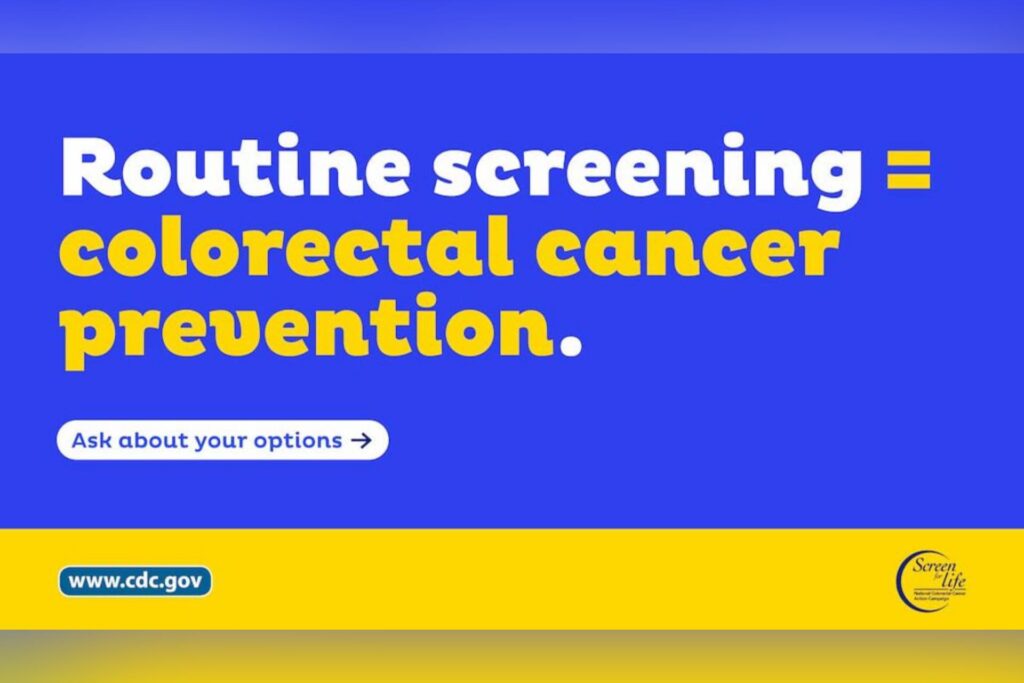The WVU Cancer Institute and the West Virginia Mountains of Hope State Cancer Coalition have joined together to promote Colorectal Cancer Awareness Month in March and, specifically, Dress in Blue Day on March 7 to help underscore the importance of colorectal cancer screening in the Mountain State.
Despite being one of the most preventable cancers, colorectal cancer is the fourth most common cause of cancer deaths for men and women combined in the United States and West Virginia. It is estimated that one in 23 men and one in 26 women will develop colorectal cancer in their lifetimes.
In the five-year span between 2016 and 2020, an average of 1,129 West Virginians were diagnosed with colorectal cancer each year, while an average of 435 died from the disease annually. The majority (over 90 percent) of colorectal cancer cases in the state occurred in individuals over the age of 50. Additionally, more than half (59 percent) of these colorectal cancer cases were diagnosed at a late stage, indicating the need for increased on-time screening.
Colorectal cancer screening, starting at age 45 and continuing through 75, can detect cancer early, when it is easier to treat and cure. Timely screenings are important to saving lives, but approximately one out of three adults in this age group have not been evaluated for colorectal cancer. Individuals should talk with their healthcare providers about the colorectal cancer screening test that is right for them.
“Colorectal cancer screening saves lives. In West Virginia, let’s stand together and encourage one another to get screened,” Susan Eason, program director for the West Virginia Program to Increase Colorectal Cancer Screening, said. “Our health is our greatest asset, and taking this step to screen will save lives.”
On March 7, individuals, healthcare providers, community organizations, and faith groups are encouraged to dress in blue and wear a blue star to promote and raise of colorectal cancer screening. Community members and organizations are encouraged to take photos of their blue outfits and blue stars and post them on their favorite social media platform using the hashtag #WVBlueforCRC.
The United States Preventive Services Task Force (USPSTF) recommends that colorectal cancer screening begin at age 45 for both men and women at average risk, a change from the previous recommendation to begin screening at age 50. Since 2023, colorectal cancer screenings are covered by most health plans, beginning at age 45. People who are in good health and with a remaining life expectancy of more than 10 years should continue regular colorectal cancer screening through the age of 75. For those older than 75, the decision to screen should be based on the recommendation of their healthcare providers.
Someone is considered to be at average risk for colorectal cancer if they do not have any of the following:
- Personal history of colorectal cancer or certain types of polyps
- Family history of colorectal cancer
- Personal history of inflammatory bowel disease (ulcerative colitis or Crohn’s disease)
- Confirmed or suspected hereditary colorectal cancer syndrome, such as familial adenomatous polyposis or Lynch syndrome
Those interested in colorectal cancer screening should talk to their healthcare providers about risk factors and which screening test is appropriate for them. For more colorectal cancer screening information, visit CDC.gov/Colorectal-Cancer/Screening.
To schedule an appointment for colorectal screening, contact your primary care physician or your local health department.
For more information on the WVU Cancer Institute, visit WVUMedicine.org/Cancer.













